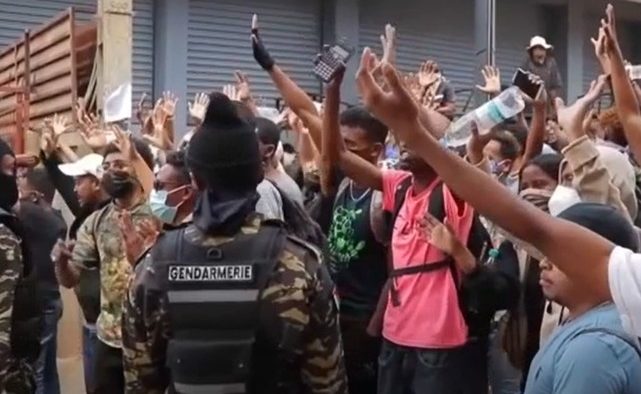Madagascar: A Deep Social Crisis Calls for Structural Reforms

A deep social crisis has been rocking Madagascar since September 25th, with massive demonstrations erupting in major cities. Protesters are voicing anger over precarious living conditions—water shortages, power outages, high unemployment—and a growing sense of abandonment, especially among young people. Widespread distrust of the state is taking hold. To address this, structural reforms are urgently needed: the opening of a national dialogue, audits of public services, an end to repression, a strengthened justice system, and major investments in youth.
Madagascar is in the midst of a profound social upheaval. Since September 25th, demonstrations have multiplied across the country’s major cities. In response, President Andry Rajoelina announced the dissolution of his government in an attempt to calm the situation. Yet the streets continue to resonate with unrest.
Protesters have expressed widespread discontent: persistent poverty, drinking water shortages, chronic power outages, high unemployment… But above all, a deep feeling of abandonment. This anger, led by a connected, informed, and determined youth-Generation Z-has struck a powerful chord with the wider population.
The protests have been met with violent repression and episodes of looting. The toll is heavy: at least 22 dead and several hundred injured, according to medical and civil society sources. Calls for the president’s resignation are growing, as distrust of the state continues to deepen.
A Crisis with Deep Roots
This crisis stems from long-standing structural issues: poor governance, endemic corruption, and chronically inefficient institutions. The Malagasy economy remains heavily dependent on imports, while basic infrastructure-water, electricity, roads-has failed to keep pace with population and urban growth.
In working-class neighborhoods, shortages have become the norm. Residents sometimes go several days without access to water or electricity. Development promises have multiplied, but public investment has consistently fallen short.
Added to this are widespread poverty, a fragile education system, and a saturated labor market. For young people, future prospects are bleak. Many feel excluded from a system dominated by a political elite seen as out of touch with reality.
A Generation Demanding Change
It is within this context that an unprecedented mobilization is emerging, driven by young people who refuse to remain silent. Their demands go beyond basic needs: Malagasy Gen Z is calling for a complete overhaul of governance, greater transparency, more justice—and above all, a future.
Despite the government’s dissolution and the announcement of a few reforms, distrust remains deep. Tensions are still palpable in the streets. And one key question remains: will the authorities truly hear the voice of a generation that no longer wants to endure, but to build?
The state violence observed during the recent demonstrations constitutes a serious attack on fundamental freedoms, including freedom of expression, peaceful assembly, and life itself. Given the gravity of the situation, the ADH calls for a political response commensurate with the current crisis and makes concrete recommendations for a way out of the crisis in Madagascar:
1. Immediately end the repression and launch an inclusive national dialogue, bringing together civil society, youth, trade unions, and regional representatives to co-develop lasting solutions.
2. Conduct independent audits of essential public services-particularly water and electricity-and implement an emergency plan to guarantee vital access for the most affected populations. More than a technical measure, this is a call for dignity and a future for an entire generation facing hardship.
3. Massively invest in youth: education access, vocational training, support for entrepreneurship, and pathways to economic integration.
The ADH also stresses the essential role of the international community, calling on Madagascar’s technical and financial partners to link their support to concrete commitments for human rights, transparency, and social justice.

